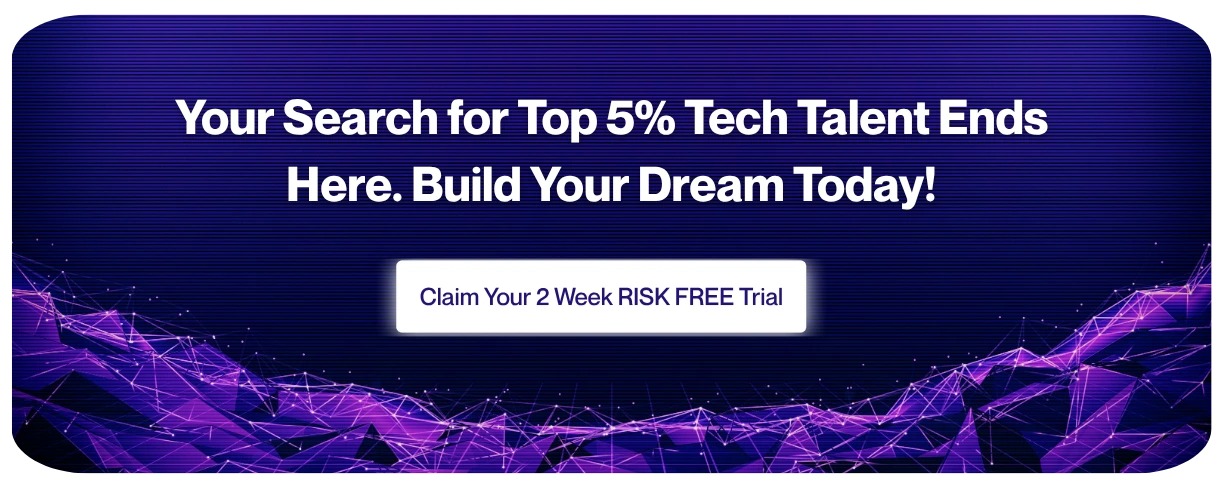Mifu Accelerates AI-Driven Influencer Platform with epicX Talent
Resources aligned
Digital Marketing
London, UK
Mifu is at the forefront of micro-influencer marketing, offering an AI-driven platform that streamlines campaign management from research and creator matchmaking to content coordination and performance monitoring.
By replacing chaotic manual processes with automated workflows, Mifu empowers brands to execute highly effective, cost-effective influencer campaigns at scale. As Mifu’s innovative platform gained traction, their need for a robust and scalable technical team intensified to keep pace with rapid feature development and market demands.
To meet these critical requirements, Mifu sought a partner that could provide top-tier tech talent swiftly and efficiently.
As Mifu’s platform evolved, two primary challenges emerged for their engineering leadership:
The need to rapidly develop and deploy new, sophisticated features, particularly in AI/ML integration for precise creator matchmaking and insightful campaign analytics.
Sourcing highly skilled backend and frontend engineers capable of contributing immediately within a fast-paced, innovative startup environment, while navigating a competitive global tech hiring landscape.
"We needed to rapidly enhance our AI capabilities and platform features to maintain our market leadership. Finding the right blend of specialized skills and cultural fit, quickly, was our biggest hurdle."
- Founder of Mifu
Mifu’s internal hiring processes were thorough but time-consuming, involving extensive resume screening and multiple interview rounds. This often led to recruitment cycles stretching into several weeks, impacting the pace of product innovation.
epicX provided an average of 3 highly qualified, pre-vetted candidates for each role, significantly streamlining Mifu’s selection process. The average time from candidate review to offer dropped to just 22 days, with the fastest resource integrated into the team in an impressive 7 days.
Mifu selected epicX as their tech outsourcing and staff augmentation partner to address three core needs
Accessing highly specialized, senior AI and Full-Stack development talent without compromising on quality or incurring prohibitive costs.
The ability to rapidly scale technical teams with ready-to-deploy resources, ensuring agility in responding to evolving product development demands.
A partner with proven expertise in building complex, AI-powered SaaS platforms and a strong track record of delivering high-quality custom software development.
"epicX’s approach to staffing our engineering team was transformative. The quality of the AI and Full-Stack engineers they aligned with us was exceptional, and their ability to integrate seamlessly allowed us to accelerate our roadmap significantly. We didn’t just get candidates; we got integral team members."
Through its strategic partnership with epicX, Mifu successfully bolstered its technical capabilities, solidifying the foundation for its AI-driven micro-influencer marketing platform.
epicX's provision of expert software engineers, specifically in backend development for scaling their campaign automation engine, and frontend development for enhancing user experience across their dashboard and creator app, enabled Mifu to accelerate the deployment of critical features.
These included advanced AI-powered creator matchmaking algorithms and a more robust campaign operator dashboard, directly impacting Mifu’s mission to transform influencer marketing.
By aligning 3 top-tier, dedicated technical resources from epicX, Mifu significantly reduced its development timeline, pushing new platform features and AI enhancements to market 35% faster.
The direct contribution of EpicX’s expert AI and software engineers led to a 25% improvement in the precision of Mifu's creator matchmaking engine and overall platform performance.
Mifu achieved over 40% cost savings compared to traditional in-house hiring, while gaining immediate access to highly specialized tech talent.
EpicX’s pre-vetted professionals integrated effortlessly into Mifu's existing agile workflows, fostering high productivity from day one.
"epicX doesn't just find engineers; they find the right engineers who fit our technical and cultural needs. Their tech outsourcing model simplified our entire hiring process and delivered tangible results, making them an invaluable partner in our growth."

Founder of Mifu

Starting a startup means making countless critical decisions — and software development is among the most impactful.
The real cost of making wrong tech decisions is not just the money spent; it’s lost time, broken momentum, and missed opportunities that can stall or even kill the business.
In the fast-paced startup world, speed and alignment are everything, and choosing the right approach to software development can make the difference between soaring success and costly failure.
Skip the textbook clichés; this is about what actually works when you’re racing against the clock, limited budget, and evolving market needs.
Read on to discover the critical do’s, don’ts, and a better way to build startup software and hire software developers that compounds value and accelerates growth.
Founder regret almost always comes down to people's decisions rather than technology or features.
The biggest multiplier in product success is hiring engineers who own outcomes and are deeply aligned with the business vision, not just writing code.
If product velocity feels sluggish or misaligned, look first at who is building it and whether they’re empowered to own the roadmap.
Tech failures are rarely about lacking vision. Instead, they stem from a misaligned development strategy, building too much, too soon, or in the wrong direction.
Founders pour months into features that no one uses, often because engineering isn’t looped into business goals. To succeed, engineers should be as obsessed with product-market fit as founders.
This is a trick question. In reality, unclear requirements, miscommunication, and fuzzy specs drag progress down faster than bad code.
Technical debt originates more from bad alignment than bad engineers. If your builds stall, examine your communication workflows before blaming the code quality.
Startups face intense pressure to deliver quickly, but can’t sacrifice quality.
The key is embracing agile development with short sprints, continuous integration, and automated testing to maintain velocity while reducing bugs.
Fast shipping combined with iterative learning beats waiting for the "perfect" build.
Planning for scale prematurely is a classic trap. The “we’ll need this when we’re big” mindset leads to overengineering, bloated features, and slower delivery.
Instead, design modular systems that can evolve flexibly, build lean, then scale deliberately.
Handing off your core product without a technical owner in-house is risky. Many founders face misalignment, overbuilding, or “black box” development when outsourcing blindly.
Smart delegation means keeping a product-minded leader deeply involved and validating scope frequently.
Many startups mistake feature-heavy prototypes for MVPs. True MVPs optimize for learning cycles and validated user demand, not the volume of code or features. Build just enough to prove market adoption efficiently, then iterate.
A neglected communication setup causes hidden drag. Lack of async tools, poor documentation, and infrequent feedback loops create confusion, duplicated work, and late pivots. Building transparent, documented workflows from day one avoids loss of velocity.
Speed is vital—but rushed recruitment causes long-term technical debt. One wrong hire can cost more than three good ones combined. Many founders endorse short, paid pilot engagements to test communication, culture fit, and code quality before full onboarding.
Misalignment between vision and execution leads to wasted effort. Fix it by having founder-friendly documentation, structured sprint planning, and a clearly accountable product owner on the engineering side. Daily demos create visibility and course correction opportunities.
Low-cost development often backfires with expensive rewriting, bug fixes, and lost learning time. MVP budgets typically range from $10k to $40k for simple web apps, but time lost on overbuilding is the killer cost. Invest upfront to save multiples in rebuilds.
Building is only the start, maintenance and updates can cost 20-40% of the original development budget annually. Founders often underestimate this, causing fragile products and unhappy users. Plan maintenance costs and processes from day one.
Early-stage startups win by speed, not polish. Focus on delivering functional releases quickly, gathering user feedback, and adjusting based on data. A fast iteration loop beats six months of stealth building every time.
Your dev team shouldn’t just build features—they should build outcomes. Translating business KPIs into sprint goals ensures engineers know how their work moves the needle for the company.
Use tools like Slack, Notion, or Linear to document decisions and maintain asynchronous communication. Strong processes save hundreds of hours compared to resolving misalignment later.
Test developers with real deliverables before scaling. Paid pilots give you a clear picture of communication styles, problem-solving skills, and technical depth—reducing the risk of long-term mismatches.
Hire developers who think like product owners. Ownership ensures proactive problem-solving, better decision-making, and deeper alignment with startup goals.
Designing software in modular components makes pivoting or scaling far easier. For example, using microservices lets startups scale individual functions without breaking the entire system.
AI, blockchain, or microservices sound exciting, but if they don’t directly solve user problems, they’re distractions. Proven tech stacks are easier to hire for and maintain.
Without an in-house product owner, outsourcing quickly turns into “build whatever was asked.” Keep a strong technical leader tied into every sprint to avoid wasted money.
Adding engineers without upgrading management capacity creates bottlenecks. One CTO or tech lead can only handle so much—add leadership before adding bodies.
Skipping specs and decision logs leads to black-box products that no one can maintain later. Even lightweight documentation saves months of confusion.
Adding features no one uses is the fastest way to burn runway. Focus only on what validates your business model.
Great startups ensure tech follows strategy, not the other way. Build only what drives measurable business outcomes instead of filling the backlog with “nice to haves.”
Use structured hiring: 2–4 week pilots, rigorous code reviews, and onboarding frameworks. Precision hiring saves you from costly rehiring and wasted cycles.
Vendors deliver hours; partners deliver outcomes. Treating your dev team as partners ensures they share your urgency and vision.
Short sprints, daily standups, and retrospective adjustments help you adapt quickly to user needs and shifting markets.
epicX is not a typical outsourcing agency, it’s a founder-first tech outsourcing partner built for startup realities. Unlike body shops that just fill seats, epicX helps you hire software developers who are pre-vetted, startup-ready, and deeply aligned with your goals.
What makes epicX different?
epicX helped launch their platform faster with three core engineers, optimized AWS infrastructure, and achieved 65% cost savings without compromising performance.
epicX rebuilt their digital platform from scratch, reduced AWS costs by 70%, and scaled to over 35,000+ users in just 6 months.
epicX provided AI chatbot specialists who scaled appointment bookings, ensured compliance-ready automation, and delivered faster capacity for growth.
Explore more success stories on epicX’s case studies page.
There are no magic fixes in startup software development. Markets shift, tech evolves, but the right team, one that owns results, communicates relentlessly, and builds with clear intent, is your timeless advantage.
Avoiding technical pitfalls is just table stakes. To truly win, build with precision, iterate fast, and partner with experts who understand both code craft and the business hustle.
If building, scaling, or rebuilding, don’t risk your product’s future on guesswork. Connect with epicX, a founder-first partner in software development for startups, and accelerate growth with confidence.

Run short, paid pilots. Insist on references, code reviews, and demo cadences. Prioritize partners who understand your business, not just tech.
$10k–$40k for web MVPs, up to $60k for complex builds. Typical timeline: 2–3 months. The biggest cost? Lost time from overbuilding.
Use pilots, structured feedback, and demand transparency. Choose teams that integrate into your workflow, not disappear into a “black box.”
Validate learning, not features. Use analytics, feedback, and “kill-switch” rules for unused features. Favor modular, testable releases.
epicX delivers dedicated, pre-vetted engineers who integrate as true partners. With transparency, performance tracking, and time-zone aligned teams, we eliminate ghosting, disengagement, and wasted cycles.
Skip the job boards, candidate ghosting, and weeks of screening.
Get top-tier engineers matched to your stack, ready to deliver.
No proxies, No middlemen. Just velocity.
2-Week No-risk trial. Pay only if satisfied.
✓ 50+ tech stacks
✓ 94% success on first match
✓ Talent matched in under 48 hours